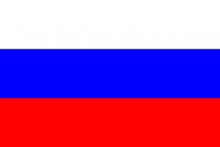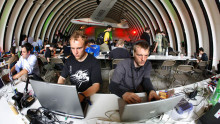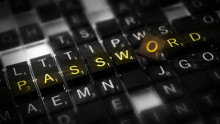Welcome to Generation Hack
Hacking seems to be everywhere right now. It's big news. The BBC got hacked on Twitter. Yahoo's email system got attacked by spammers. Even behemoths Apple and Facebook have felt the sting of hackers' digital dabblings.
Who are the humans behind the hacking? Well, sometimes it's organised criminals. Sometimes it's political activists. Occasionally it's government-sponsored attacks.












































































